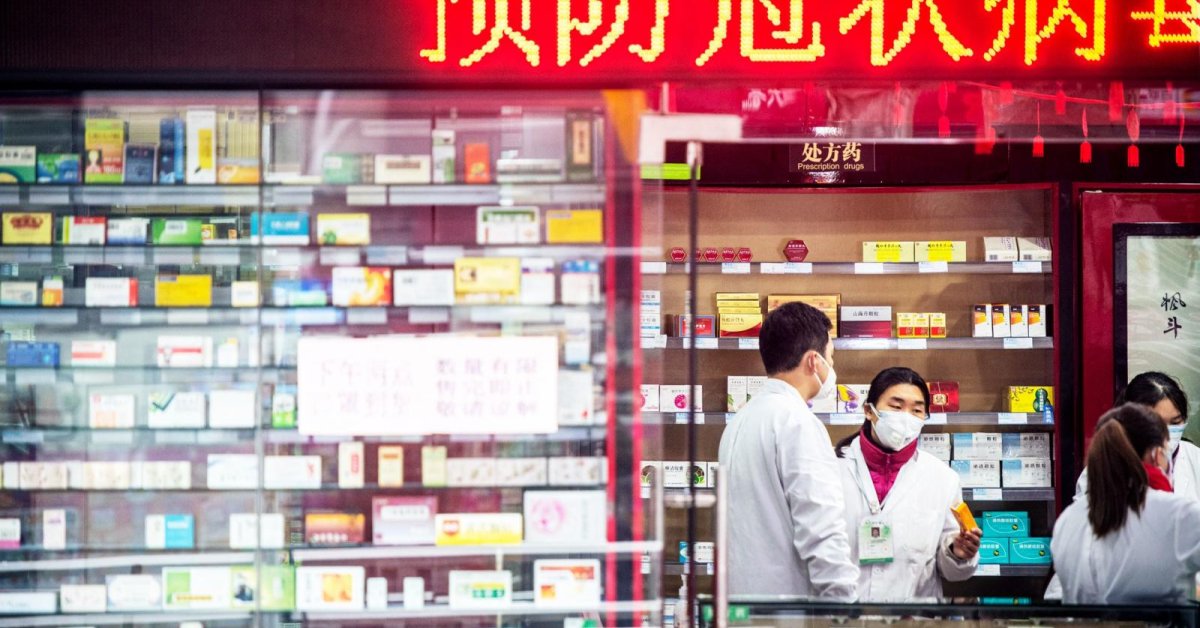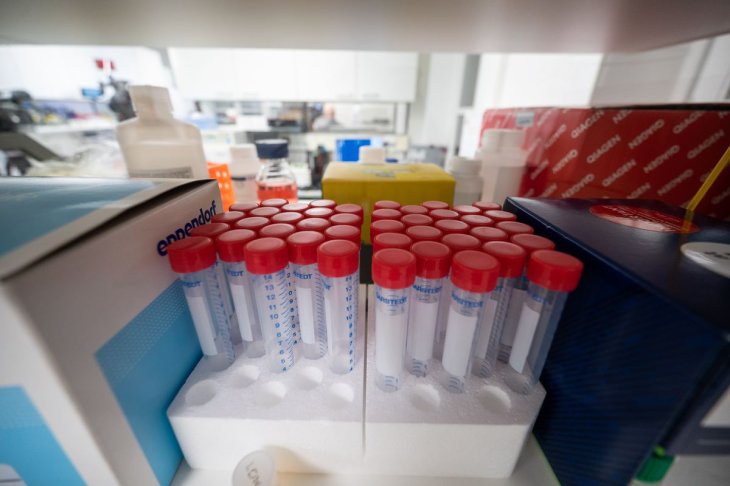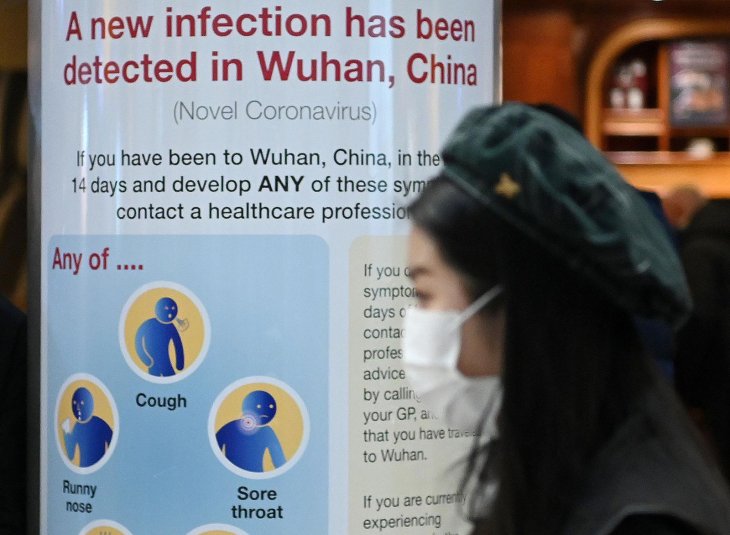Wuhan Coronavirus: How Long Do We Have To Wait For A Treatment?
Aadhya Khatri - Feb 01, 2020

We may have to wait for at least four months for the first human trial of Coronavirus treatment to be conducted, and at least a year for a vaccine
- These Indian Cities Are Under Lockdown Again In 2021
- Foreigners Required To Take COVID-19 Anal Swab Test When Visiting China
- Countries That Have Received COVID-19 Vaccines From India
According to the latest updates, around 25% of those who have been infected by the Coronavirus show serious respiratory infections. The death rate now stands at 3%.
When the pandemic is wreaking havoc in China and causing fear in many other countries, many groups are racing against time to find a cure.
While a vaccine that can protect people from being infected is what all of us expect, it might take us at least a year to produce, as stated by Jonathan Ball, a University of Nottingham’s virologist.
On the bright side, there are some existing drugs that have an effect against the Coronavirus and treatments can be developed in less than six months.
So far, we have two ways to treat infections like this. The first one is to use molecules that can stop the replication of the virus by attacking its viral proteins. These molecules are called Antivirals and these substances are easy to manufacture and keep in pill form.

However, only 1% of antivirals work, so finding one effective for the Wuhan Coronavirus may take us years.
The second method is using antibodies, which bind viruses and destroy them. This is what our bodies do to fight off diseases. However, it may take our immune system up to two weeks to produce enough antibodies to destroy the viruses. To help it, we can give patients the antibodies to grow in the vat to keep the foreign infective agents in check until our body has time to react.
The second method is usually safer to use on human bodies as antibodies tend to attack the viruses only while antivirals can stick to other substances in our bodies as well.
So the challenge here is to find the correct antibodies for the Wuhan Coronavirus and then mass produce it quickly to save those who have been infected.
Testing Antibodies
In China, a team has already had the first success with antibodies that work on SARS in 2002, one of them proves to be effective with the 2019 Coronavirus too.
However, do not put your hope up just yet, Tianlei Ying of Fudan University, the team leader said that the first test on animals and humans would have to wait for at least two months for the team to make enough to conduct trails.
Antibodies for MERS are tested too and two of them have had human trials. However, according to Regeneron, the US biotechnology company that has made them said that they could not be used against the 2019 Coronavirus but they would keep testing the two varieties and the others.

It took Regeneron half a year to have the first test on humans when Ebola broke out.
In a press release, WuXi Biologics, a Chinese company said that they had created a team of 100 to work on antibody for the Wuhan Coronavirus. The company seems confident as it announced that the first test on human can begin in the record time of four to five months.
By the time we have the needed antibody, the infected number might have reached millions, which makes producing enough cure a real challenge. There are not many factories that can make antibodies and those who can have had their hands full with treatments for other diseases and cancers, according to Ball.
There is a workaround, however. Scientists said that we could inject the gene coding for these antibodies directly to the leg muscles of those who have been infected and the healthy mass. Since the production of antibodies can last for weeks or months, this method can act as both a cure and a presentation measure. RenBio, a US company, is looking into the feasibility of this idea.
According to Neal Padte of RenBio, both methods can work but since there have been no tests conducted on humans, the authorities might not be too eager to try them.
HIV Drugs
Some small-molecule drugs have the potential to be effective on humans. For example, the one to treat Ebola called galidesivir has been proved to have some effect against the Coronavirus, as stated by BioCryst Pharmaceuticals, its maker.
A combination of ritonavir and lopinavir for treating HIV has been confirmed to be safe for human use and it also has certain effects on patients infected with MERS and SARS.
HIV drugs have been tested in Wuhan to see if they really work. If the outcome is positive, that would be a great piece of news as the production for these drugs is already in place.
>>> The Coronavirus Epidemic Is Having Serious Impact On Tech Firms In India
Featured Stories

Features - Jan 29, 2026
Permanently Deleting Your Instagram Account: A Complete Step-by-Step Tutorial

Features - Jul 01, 2025
What Are The Fastest Passenger Vehicles Ever Created?

Features - Jun 25, 2025
Japan Hydrogen Breakthrough: Scientists Crack the Clean Energy Code with...

ICT News - Jun 25, 2025
AI Intimidation Tactics: CEOs Turn Flawed Technology Into Employee Fear Machine

Review - Jun 25, 2025
Windows 11 Problems: Is Microsoft's "Best" OS Actually Getting Worse?

Features - Jun 22, 2025
Telegram Founder Pavel Durov Plans to Split $14 Billion Fortune Among 106 Children

ICT News - Jun 22, 2025
Neuralink Telepathy Chip Enables Quadriplegic Rob Greiner to Control Games with...

Features - Jun 21, 2025
This Over $100 Bottle Has Nothing But Fresh Air Inside

Features - Jun 18, 2025
Best Mobile VPN Apps for Gaming 2025: Complete Guide

Features - Jun 18, 2025
A Math Formula Tells Us How Long Everything Will Live
Read more

ICT News- Feb 19, 2026
Escalating Costs for NVIDIA RTX 50 Series GPUs: RTX 5090 Tops $5,000, RTX 5060 Ti Closes in on RTX 5070 Pricing
As the RTX 50 series continues to push boundaries in gaming and AI, these price trends raise questions about accessibility for average gamers.

Mobile- Feb 17, 2026
Anticipating the Samsung Galaxy S26 and S26+: Key Rumors and Specs
The Samsung Galaxy S26 series is on the horizon, sparking excitement among tech enthusiasts.

ICT News- Feb 18, 2026
Google's Project Toscana: Elevating Pixel Face Unlock to Rival Apple's Face ID
As the smartphone landscape evolves, Google's push toward superior face unlock technology underscores its ambition to close the gap with Apple in user security and convenience.
Comments
Sort by Newest | Popular